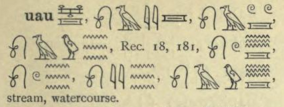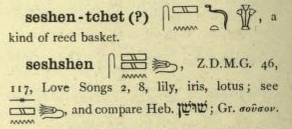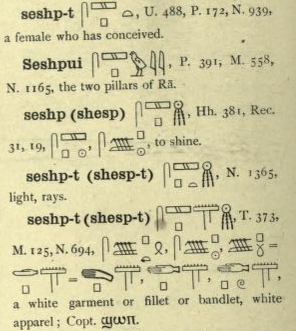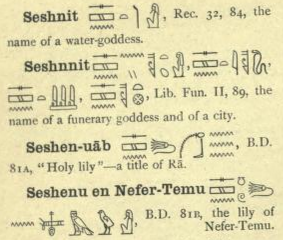RESTART
stop talking like bulls: Hosea 14
textnote:
we are aware that often people read words at face-value, and many think a term as “the land” should be ofcourse “this earth, we live on” — but a term like this is decided from the context it is placed in; for example, “Egypt” is a real country during the exodus, but always represents Sekhet-Áaru when the term is used in prophecy. Related to this face-value is a second problem, namely the line-up of the words being used:
there is the “interlinear version” (which we use), and there is the other version (from which most modern versions are taken from, as KJV); but this version is often “switching words” in a sentence, and when object and subject have switched places, it often renders a different meaning, altogether. We consider this was done on purpose, in order to “keep the adamite soul thinking like Job”, using “sorcery by words”: because sorcery is typically about “creating another consciousness by hustling the order of words”; and we consider the added term as “reverse interlinear” to be no accident.
note: our interpretation of the line in purple; possible interesting terms for you in the notes in darkblue ; we apologize for each time the extensive notes, it makes things very unreadable, but Vital for context; we added other (legal) possible readings in red , glued to objectword,
note #:
- 1) chapter 12, 13 and 14 belong together,
- 2) where ‘Jacob’ is usually “the adamite souls on earth”, we gather that ‘Israel’ is here the 144,000; first, because “Jacob was called later on Israel”, and second because the difference between mentioning (separately) “the house of Israel” and “the house of Judah” is lacking here,
Hosea 14
1-2
return-you! Israel unto ieue Elohim-of·you that you-stumble in·depravity-of·you take-you! with·you words and·return-you! to ieue Yahweh say-you! to·him all-of you-shall-bear-away depravity and·take-you! good and·we-shall-repay young-bulls lips-of·us
O Israel, return unto the LORD thy God; for thou hast fallen by thine iniquity Take with you words, and turn to the LORD: say unto him, Take away all iniquity, and receive [us] graciously: so will we render the calves of our lips
|
 |
context note: the “(right) words” are related to the “bulky type talking (of the Self!)”; it is a very intriguing theme, deciding whether someone is a false prophet, or saying true things:
because “the word” herself has an intrinsic value, as either the word of the Watercourse, or as the false “imprisoned word of the Watercourse” UA (lasso glyph); but the word (of Watercourse) will be powerless when not spoken rightly — and ‘bulls’ cannot, because that was exact that phallic mixture of being, from previous chapters; (the ‘speaking into being, as to create’ is masculine),
note: line spoken by Watercourse,
line,
“Israel, – return you! / unto / IEUE / the Deity of you, / thatbecause / you stumble / in the depravity (of Self-life) of you; / Take you! / with you / the words / and return you! / to / IEUE; / (and) say you! / to him: / all of / the depravity (of Self-life) / You shall carry-off, / and receive you! / the (eden-) good, / andfor we shall compensate / the young bulls’ / (type-) language of us,” +
3
Assyria not he-shall-save·us on horse not we-shall-ride and·not we-shall-say further Elohim-of·us to·deed-of hands-of·us which in·you he-is-being-shown-compassion orphan
Asshur shall not save us; we will not ride upon horses: neither will we say any more to the work of our hands, [Ye are] our gods: for in thee the fatherless findeth mercy
- ‘for (which)’, H834 asher, “for, which, whereby, whereas, soon, etc’
note: we saw that “horsemen” were “the ugly spirits, themselves”, here, the ‘horse’ represents the spirits-construct fueling this physical body, compare Revelation where horsemen ride their type horses,
line,
“the occupied land, south / nót / he shall save us; / (and) upon / the horse (spirits-construct) / nót / we shall (no longer) ride; / and nót / further – we shall say: / our deity / tois the work of / our hands; / whichthereby (declaring that) / in You / the lonely / he is being shown mercy. ”
— the respond to that, and describing the top of new lampstand —
4
I-shall-heal backsliding-of·them I-shall-love·them volunteer that he-turns-back anger-of·me from·him
I will heal their backsliding, I will love them freely: for mine anger is turned away from him
- ‘backsliding’, from H7725 shuwb ‘to return’ (Watercourse-related); the mêshuwbah in context must be a “nót-returning (to Watercourse)”,
- ‘love’, H157 ‘ahab; used for human relations mainly, but in this context it has the colour of “conditionally”; same word as Ahab, the crazy husband of Jezebel (undirected-feminine); context in this line must be that “returning is 1 thing – but is not the same as “them being the sons IEUE desires”, (we overlooked this in Malachi page),
- ‘turned away (turns back)’, same H7725, and per context impossible as ‘turn away’ (only ‘to return’); hence the term following cannot be ‘anger’ but must be ‘nostril’;
context note: bit tricky, second line;
it seems superfluous that IEUE is saying ‘I love voluntarily’, then the term must relate to Israel – we interpret the line that IEUE loves conditionally: giving Israel the opportunity to bring back the SH-pool as the ‘nostril’ (which must be related to the eye, ch.13); conform the other exhortions we saw, as “who will close the stardoor” etc; but had to insert (for their),
line,
“I shall heal / their chronic non-returning (to Watercourse), / I shall conditionally love them / (for their) freewill-offering / that / he is being returned / fromas himhe – the nostril of Me; “
5
I-shall-become as·the·night-mist to·Israel he-shall-bud as·the·anemone and·he-shall-smite roots-of·him as·the·Lebanon
I will be as the dew unto Israel: he shall grow as the lily, and cast forth his roots as Lebanon
- ‘grow (bud)’, H6524 parach, same case as ‘to love’ (‘ahab) above; ‘sprouting up’ but used by ‘leprosy’; colour here as “a mixture growing up”, still,
- ‘lily’, H7799 shuwshan; only 1x in prophets (here); ‘of uncertain derivation’; glyph SHESHEN; also close to Shushan, city in Elam where Daniel was – but possibly as Susa, ‘horse’; either way negative, this cluster, probably because of the doubled-SH (soulpool);
glyph pic:
|
|
pic: the lotus as the 12 QERRT-caves (all amtuat’s), as śudarsana-chakra, crystalline flower of life, and probably as the risen Áten-disk;
|
 Guylaine Bombardier |
| glyph pic: SESHESHEN to right; “to make the doubled sh-pool (via ad.soul)”; above that, the ‘kind of reed basket’, as “the dimensional background of Saturn / (as) place-T of the serpent-hand / existence (matrix) / (by) to make the (upper-) sh-pool (via ad.soul)”; [then we must also have found “the hand” now, where Adam is]; |
 |
glyph pic: SESHEP-,
|
 |
note: the 7 years before the Interval,
we didn’t understand the hesitation in this line, towards Israel; but comparing the continuation of the verses, this line 5 must still be the few years when the matrix constructs are being destroyed – where the next lines address the “new souls, which will be born upon this earth, will sit in the shade of this new tree”. The concept of “lily” must be the new region between inner-court- and outer-court gate;
line,
“and I shall become / as the (7-year-) dew / to Israel; / he shall grow (as mixture) / as the (countering-) lily, / and he (this lily) will smite / the double-root / as the whiteness (lebanon);”
6
they-shall-go layer-plants-of·him and·he-shall-become as·the·olive-tree splendor-of·him and·scent to·him as·the·Lebanon
His branches shall spread, and his beauty shall be as the olive tree, and his smell as Lebanon
- ‘branches’, H3127 yowneqeth; but as small branch taken from the cedar (great pillar );
suggestion –
many have heared Isaiah 53…. the wellknown lines about “like a lamb before the slaughter”, said to be a foreshadowing about what would happen, later on, with Christ; and though that still may be true, we think something else may be involved here. No – we are not here trying to break everything down: there is nothing wrong with the chapter just as it is, and when about Christ; but prophecy is often ‘layered’. We just observed a number of terms, which would fit the “new-lampstand”, Zerubbabel; in the context that “this new lampstand is a bit of an…. ugly construct”, according to Heaven; since he is un-doing the grave constructs which the matrix built — but in order to un-do, he has to take that certain shape (this is the analogy we are seeing here: the same did Christ). We show just a line from Isaiah 53 (then will do that chapter in it’s own page):
1) in the second line, already:
“..and he is growing up as ‘the small branch taken from the great pillar’ (yowneq,above) to he the face; and as the ‘serpent-root’ (sheresh,above) from the dry land (south) “
…does this sound to you like a lamentation-of-awe about Christ…?
- ‘splendour’, H1935 howd, not very positive; seems tampered word; context negative because of stepdown ‘hadad’ (‘and I will burn the palace of ben-hadad’); no other root; we found Akk. hadû, “rich, happy, high quality, well-off”, hidiâtû, same; hûdadu ‘crevice’and “deeply incised landscape” (related to the breaches where Eve comes forth? – page); entry suggesting the version as in Dan.10:8 is the origin, “natural colour”
note: the olive tree, as in Zecheriah; the idea appears to be that “the new cedar will not have any M-realm character in her”,
line,
” his small branches (taken from the cedar) / they shall go (spread out), / and he shall become / as – the natural colour of he – the olive tree, / and the scent / of he / as the whiteness (lebanon),”
7
they-shall-return ones-dwelling-of in·shadow-of·him they-shall-make-to-live grain and·they-shall-bud as·the·vine remembrance-of·him as·wine-of Lebanon
They that dwell under his shadow shall return; they shall revive [as] the corn, and grow as the vine: the scent thereof [shall be] as the wine of Lebanon
- ‘grow’, same word as previously, “mixture growing up”,
- ‘corn’, H1715 dagan, unlikely, since corn as glyph NEPER; usually in spells the ‘foods and breads and cakes’ are of wheat, as eden-attribute, related to the qualities of the body; a bit strange is the root dag-, ‘fish’, but perhaps that is exact why the fish-souls needed that grain,
note: the original eden-vine, gephen, as the ram with two horns, shared aspect of realms,
line,
“they (people during the Interval) shall return / (being) the ones dwelling of / in his shadow; / the (eden-) grain / shall make them to live, / (and) asby the eden-vine / they shall grow (as the mixture), / he (being) the remembrance (of IEUE having acted) / as the wine of / whiteness (lebanon).”
8
Ephraim what? to·me further to·grief-fetishes I I-humble and·I-am-regarding·him I as·fir flourishing from·me fruit-of·you he-is-found
Ephraim [shall say], What have I to do any more with idols? I have heard [him], and observed him: I [am] like a green fir tree. From me is thy fruit found
- -‘any more (further)’ H5750 oud; “again, more, good while, longer, else, since, yet, still”,
- ‘observe’, same term used in being the leopard, in previous chapter,
- ‘green’, H7488 ra’anan; likely chlorus (the uatch poison-green), ra- as evil cluster; but the problem is the fir-tree “being a shared aspect of both realms”, so this ‘green’ should turn out to be ‘positive’ as well, H7442 ranan, (54x) “shout for joy”, almost every instance, joy over conquering evil?
context note: conclusion about the attribute ‘Ephraim’:
only here, at the end of the 3d chapter about Ephraim, it turns out that ‘ephraim’ must be “the physical body during the Interval” (because many souls will be born still, in the same type physical body we have now), but then it won’t be the type… oppressed and crippled bodies, as we have them right now — perhaps we could suppose a ‘post-eden type body’, or at least one which will be not so closed-off as this post-deluge solarplane one. That he is not part (as tribe) of the 12 x 12,000, is supported by the line in chapter 13 (the line about the other sons).
note: a harsh line, the first (and second!), but considered the above, it must be Valid;
because during the Interval all the peoples will still need to sacrifice (becáuse of this); and the line must be ‘future-tense’ here, because though Ephraim “won’t be part of the other sons, this time”, many other verses declare the care for him, note: please remember the fir-tree is a shared aspect, a fir-tree from the Watchers, as well as a fir-tree belonging to Eden,
line,
“what / (will be) ‘un-doing the ka-double’ / to Me / further / toas (only) the images (of spirits)?; / (and) I (IEUE) / I answer: / andfor I am observing (like a hunter) him, /
I / as the (eden-) fir-cypress tree / (being) the greenness (of joy) / from me, / the fruit of you / it is found,”
9
who? wise and·he-shall-understand these being-understood and·he-shall-acknowledge·them that upright-ones ways-of ieue and·righteous-ones they-shall-go in·them and·ones-transgressing they-shall-be-stumbled in·them
Who [is] wise, and he shall understand these [things]? prudent, and he shall know them? for the ways of the LORD [are] right, and the just shall walk in them: but the transgressors shall fall therein
note: we only switched place the (the straight ones),
line,
“who / (is) wise / and he shall understand / these (things) / being understood?; / andbut heit shall be known by them (the righteous), / thatbecause / the ways of / IEUE / (are) the straight ones, / and the righteous / they shall walk / in them; / andbut the ones transgressing (by dividing, cleaving) / they will be stumbled / in them.”
——- end Hosea 14
20/12/17 loNe first version

